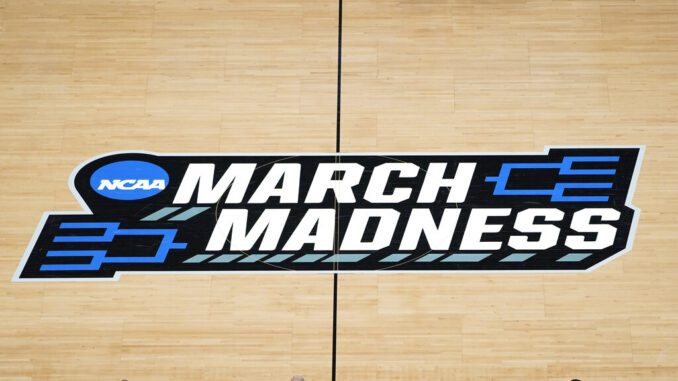
The brackets of all die-hard college hoops fans were busted in the first round of March Madness when No. 15 seed St. Peter’s pulled a thrilling upset of basketball blueblood Kentucky, the No. 2 seed, in the East Region. The Peacocks instantly became the Cinderella darlings of the tournament as they pranced their way into the Sweet 16. While Kentucky fans were disappointed and extremely embarrassed by their early exit, the Wildcats did have one of the most inspirational stories of the tournament this year in their power forward, Oscar Tshiebwe.
Tshiebwe, a native of Lubumbashi, Congo, was named a consensus first-team All-American and SEC Player of the Year. There are several articles on the Sports Spectrum website detailing how he shares his Christian faith on social media and even preaches during his hectic schedule as a student-athlete. Tshiebwe has over 36,000 followers on Twitter, and his profile reads, “Pray more worry less, Real help comes from God.” With an upcoming decision on whether to return to Kentucky for his senior year or enter the NBA draft, Tshiebwe has said that he will be spending time in prayer regarding the next step for his future.
Tshiebwe transferred to Kentucky from West Virginia, and in college basketball’s current one-and-done era, he stands out as a veteran star. If he decides to suit up for the Wildcats next season, Kentucky would definitely be in position to make a deep run in the tournament, and he would also bolster another important statistic for his team that oftentimes gets overlooked when chasing championships: graduation rates.
During the first week of March Madness, the annual study “Keeping Score When It Counts” was published by The Institute for Diversity and Ethics in Sport. The TIDES report is a compilation and analysis of the 2022 academic progress and graduation success rates for NCAA Division I men’s and women’s basketball tournament teams. During the nearly two decades that TIDES has published its reports, the data shows that female athletes have consistently graduated in higher numbers than their male peers, with schools in this year’s study boasting a 93.9% graduation rate for women. Male basketball players averaged an 87.2% graduation rate.
The graduation rates are calculated by using the Academic Progress Rates and Graduation Success Rates. APRs are determined utilizing a team metric based on a four-year average that awards points for student-athletes being academically eligible and remaining at their initial institutions. The total points are divided by the team’s possible points and then multiplied by 1,000 to compute the APR. To be eligible to compete in post-season play, schools must have a minimum 930 APR.
The GSR was implemented in 2005 and tracks athletes for six years. It includes transfers like Tshiebwe and does not penalize schools when student-athletes leave “in good academic standing.” The Kentucky men’s basketball team had an impressive 994 APR, which was 24 points higher than St. Peter’s, who bounced them from the tourney, and TIDES’ GSR data reported the Wildcats with a 100% graduation rate. Many would find Kentucky’s high scores surprising due to them leading all schools with the most freshmen declaring for the NBA draft since the one-and-done rule went into effect in 2006. Tshiebwe staying at Kentucky would continue the upward trend of UK student-athletes earning their degrees. Overall, Kentucky has a 92% GSR for all sports.
Of course, as March Madness rolls on, graduation rates won’t dominate sports headlines, with fans focused on which teams will make the Final Four and who will eventually be crowned champion in New Orleans. Tshiebwe won’t be in the news again until he announces his decision on turning pro. He’s in a fortunate position as less than 2% of men’s college basketball players are drafted into the NBA, and from seeing how he has carried himself with humility and poise, I’m sure he will make a wise choice.
Watching and rooting for student-athletes like Tshiebwe, who are excellent representatives of their schools, makes the tournament extra special and even more fun to follow.
Dr. Jessica A. Johnson is a lecturer in the English department at Ohio State University’s Lima campus.



